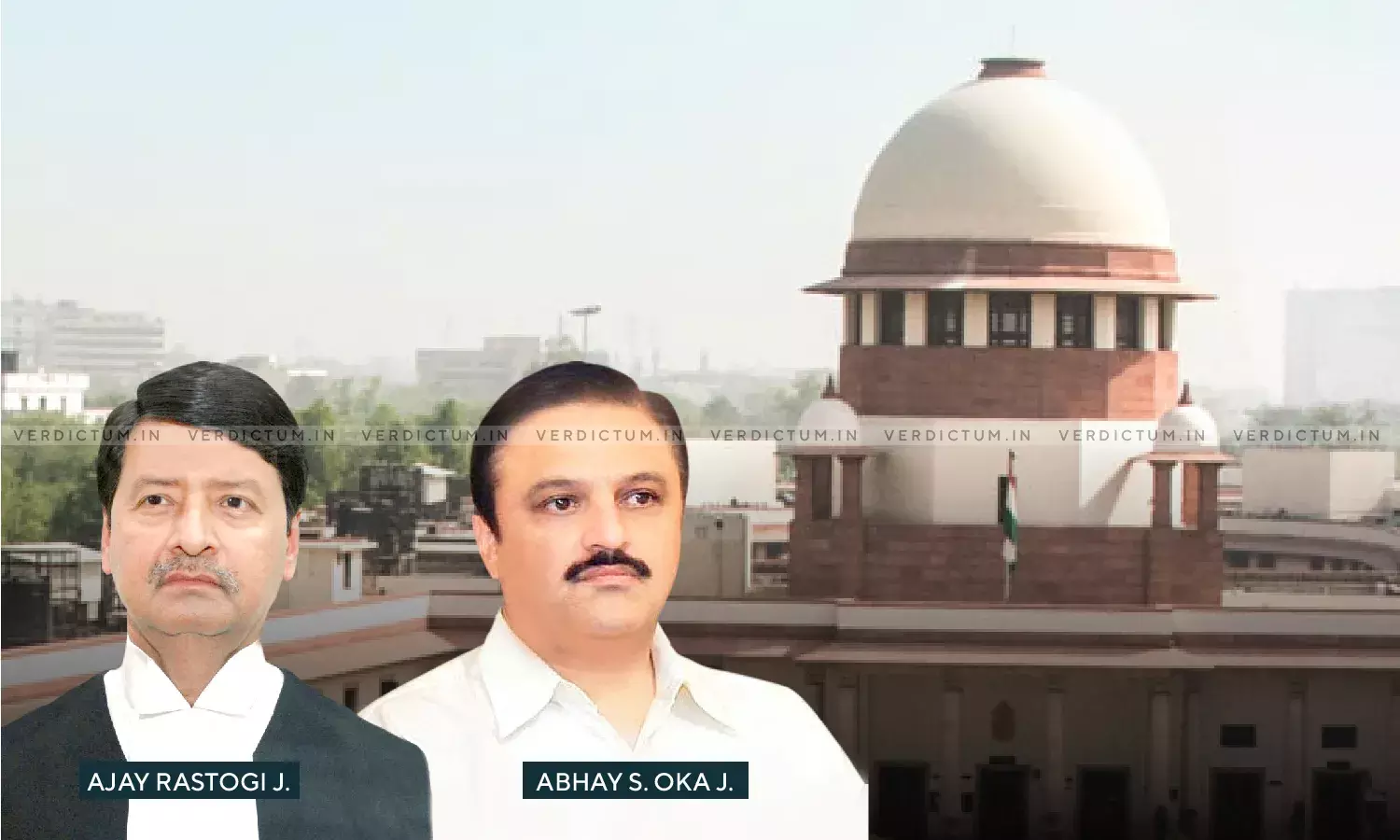Appellant Has Right To Point Out That Ex Parte Order Was Illegal From Record Of Trial Court – SC Reiterates

A Supreme Court Bench of Justice Ajay Rastogi and Justice Abhay S Oka remanded a suit back to the City Civil Court, after setting aside the judgment passed by the Karnataka High Court. In that context, it was held that "the appellant can always urge in an appeal against the decree that an interim or interlocutory order passed during the pendency of the suit affecting the decision of the case was illegal. Therefore, the appellant, while challenging ex parte decree by filing an appeal, can always point out from the record of the trial court that the order passed to proceed with the suit ex parte against him was illegal."
While accepting the prayer for remand of the suit, the Court noted that the suit was instituted in the year 2014 and as a result of the order of remand, the suit instituted by the First Respondent will be delayed, therefore the Court imposed a cost of Rs. 2 lakhs on the Appellant to be paid to the First Respondent.
Counsel Anand Sanjay M Nulli appeared for the Appellant, and Senior Counsel Arvind Kamath appeared for the Respondent.
In this case, the Respondent filed a suit in the City Civil Court at Bengaluru for a declaration that he was the absolute owner of the suit property. Additionally, the Respondent contended that an illegal structure was erected by the Appellant on the suit property, and sought a decree for the removal of the structure.
The Trial Judge observed that the Appellant did not appear despite the service of summons and did not contest the suit. The Court passed a declaratory decree by declaring the Respondent as the owner of the suit property. Also, the Appellant was directed to remove the structure, and was restrained by a decree of perpetual injunction from entering the property and from interfering with the peaceful possession and enjoyment by the Respondent.
The High Court confirmed the decree on merits. The Appellant preferred an appeal before the Apex Court.
The Supreme Court first dealt with the question whether the Respondent - when did not avail the remedy under Rule 13 of Order IX of CPC - can agitate in the regular appeal against the decree that the trial court had no justification for proceeding ex parte against him. Relying on the case of Bhanu Kumar Jain v. Archana Kumar & Anr., the Court held that "only when the application made by a defendant under Rule 13 of Order IX of CPC is dismissed that such a defendant cannot agitate in the appeal against ex parte decree that the order directing that the suit shall proceed ex parte was illegal or incorrect."
In that context, the Court further held that since the Appellant had not filed the application under Rule 13 of Order IX of CPC, a contention of such nature could be raised by him.
The Court also held that there was no warrant for proceeding ex parte against the Appellant, as the record showed that the Trial Court did not direct affixing a copy of the summons on the outer door of the premises in which the Appellant was residing, as required by Rule 17 of Order V of CPC.
Further, from the rejoinder the Court found that a multi-storeyed building consisting of ground plus four floors had been constructed on the suit property and the residential premises in the building on the suit property were occupied by different persons. The Court held that this factual situation led them to be inclined to accept the prayer for remand of the suit.
Therefore, the Apex Court allowed the appeal in part and restored the suit to the file of the City Civil Court. The Court also set aside the judgment passed by the High Court.
The Appellant was directed to file his written statement within a period of one month from 26th September 2022, with no possibility of the grant of extension of time under any circumstances. Further, the Apex Court directed that the Trial Court must endeavour to give necessary priority for the disposal of the suit.
Cause Title - G.N.R. Babu @ S.N. Babu v. Dr. B.C. Muthappa & Ors.
Click here to read/download the Judgment

